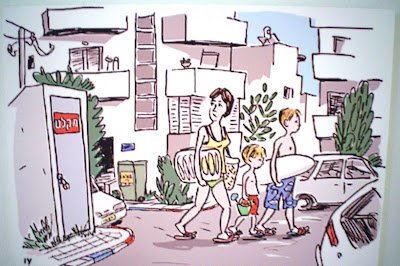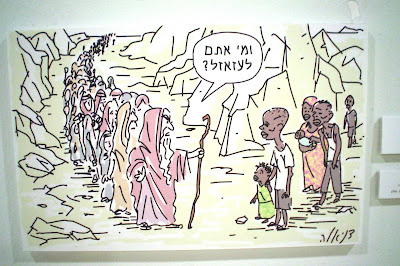BY
AMOSThe Iraqi parliament passed a crucial elections law yesterday, which is said to end a political stalemate that had prevented any progress on the road to holding new elections. The electoral law specifically addresses the thorny issue of voter lists in
Kirkuk, the oil-rich city in northern Iraq, home to a mixed population of Kurds, Arabs, and Turkmens.
Located in the Kirkuk Governorate, outside of the present borders of the Kurdistan Regional Government (KRG), which is currently comprised of the
Iraqi governorates Arbīl, As-Sulaymāniyyah, and Duhok , the former Ottoman city's political future is still uncertain. As is well-known, Saddam Hussein settled large numbers of Arabs in the city to reduce Kurdish influence there. In the post-Saddam era, large numbers of Kurds have moved to Kirkuk. Arabs and Turkmens in the city and the Iraqi central government fear that Kirkuk will fall under KRG control. They have thus far insisted that future Iraqi elections, to be held in early 2010, would use 2004 voters' lists for Kirkuk. These lists would presumably have fewer Kurdish eligible voters for Kirkuk than lists compiled in 2009. As a result of the political stalemate among the various interested parties, a comprehensive elections law has languished.
The bill that passed yesterday, appears on the face of things to favor the Kurds. Under the new elections law, Kirkuk voter eligibility will be determined by 2009 residents' lists. Such lists would increase the Kurdish share of the vote and political representation of the city. As
Juan Cole, translating and paraphrasing
Al-Zaman, writes, Kurdistan Alliance MPs were jubilant at the passage of the bill. Cole believes that American Vice President Joe Biden must have lobbied hard with Arab leaders to achieve the passage of this bill (he takes issue with another blogger on this point):
Steve Clemons reports that Vice President Joe Biden played a central role in the negotiations. Clemons stresses his calls with Kurdistan president Massoud Barzani. But since the legislation was a big win for the Kurds, the hard talk must have been with Arab leaders such as PM Nuri al-Maliki, who gave up a lot on Kirkuk.
The
New York Times quotes both Turkmen and Arab legislators from the city, reporting that
[t]he compromise satisfied each of the groups competing for dominance in Kirkuk. “We have passed a stage, a crisis, and no one is a loser,” said Abbas al-Bayti, a Turkmen legislator.
Osama al-Najafi, an Arab legislator, said: “There will be no injustice for the people of Kirkuk. This is a great victory for their historical rights.”
There is a proviso in the elections law intended to prevent voter registration fraud in Kirkuk, but that in itself does not seem enough to assuage the fears of Arabs and Turkmens that they might find themselves under Kurdish rule. Does anyone know how the impasse was really resolved? My suspicion is that some high-stakes wrangling was involved that included more far-reaching guarantees to the various parties, all backed by the U.S. government.










